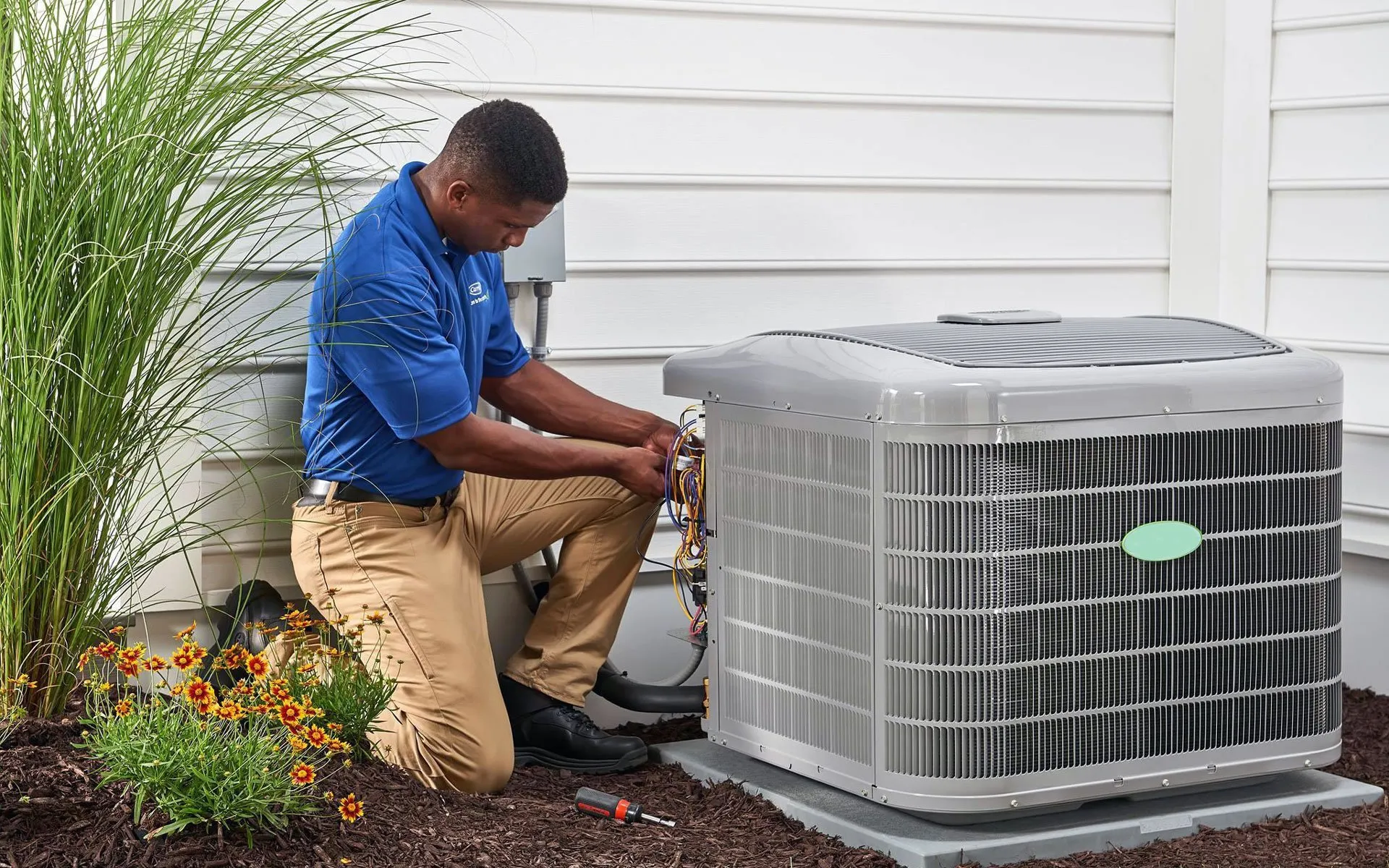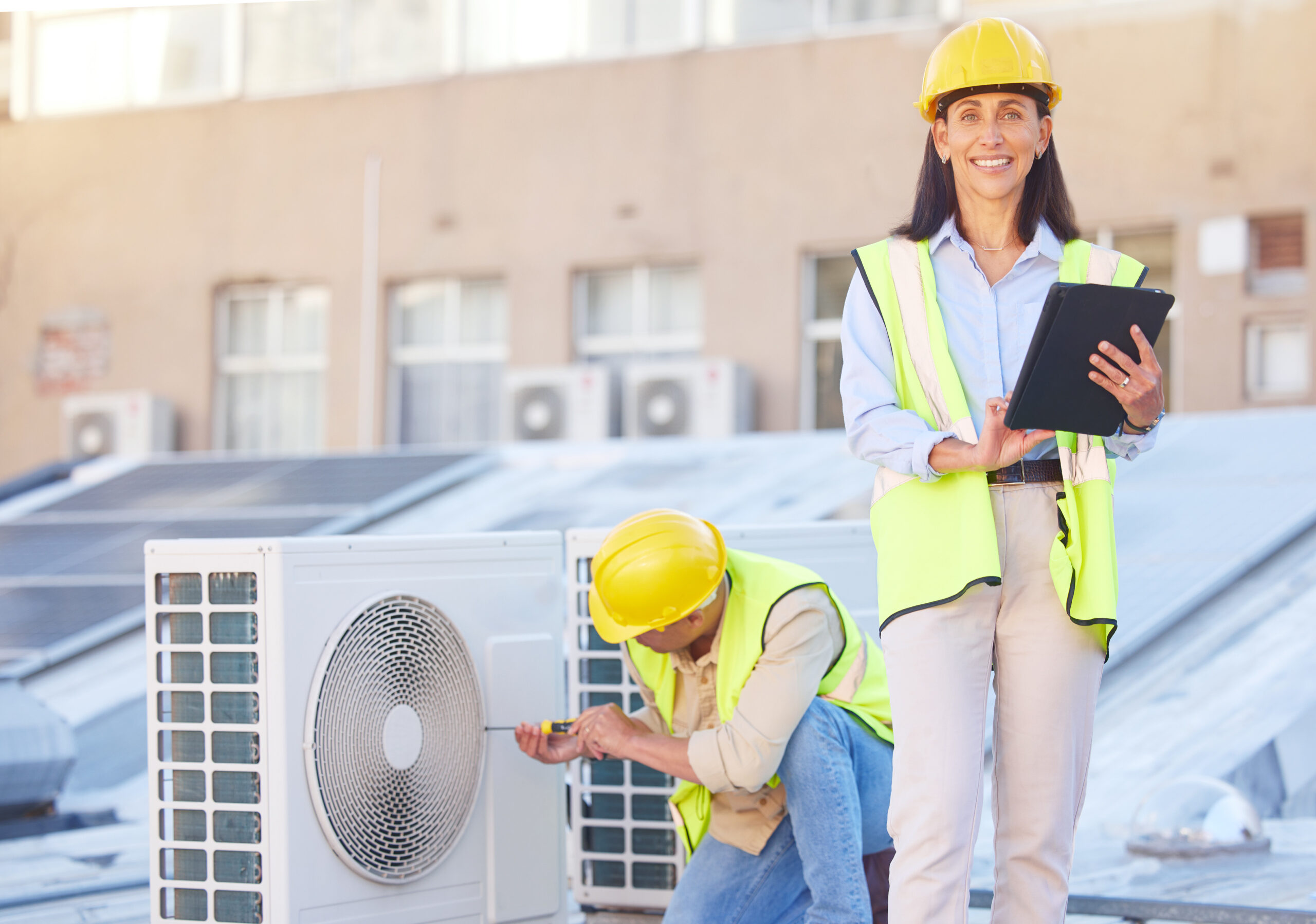Is a furnace replacement Worth It?
Is a furnace replacement Worth It?
Blog Article
Choosing In Between a Heat Pump and Heating System: Secret Considerations for Your Heating And Cooling Requirements
When evaluating home heating choices for heating and cooling requires, the decision in between a warmth pump and a furnace can be intricate. Each system uses unique advantages tailored to certain climates and energy performance objectives. Understanding these differences is vital for making an informed selection. Trick variables such as setup costs and ecological influence better complicate the option procedure. Which option genuinely aligns with one's convenience and sustainability preferences? The adhering to areas will discover these considerations in detail.
Comprehending Heat Pumps: Exactly How They Function and Their Benefits
While many house owners think about numerous home heating options, comprehending just how warm pumps function and their advantages can greatly affect their decision. Heatpump run by transferring warmth instead of producing it. In the winter, they draw out warmth from the outside air or ground and transfer it inside, while in the summertime, they reverse this procedure, cooling down the home by removing heat outside. This twin functionality makes them versatile for year-round climate control.One of the main advantages of warmth pumps is their energy efficiency. They utilize significantly much less electrical energy compared to conventional furnace, potentially resulting in lower utility bills (ductless mini splits). In addition, heatpump have a smaller sized carbon footprint, making them an ecologically friendly choice. They additionally call for much less upkeep than traditional systems, adding to long-lasting price savings. Generally, comprehending the mechanics and advantages of heatpump can aid property owners make notified decisions regarding their home heating and cooling down needs
Checking Out Furnaces: Types, Procedure, and Benefits
Furnaces come in different types, consisting of gas, electrical, and oil designs, each with unique operational mechanisms. Comprehending these differences is vital, as they influence performance and heating efficiency. Additionally, heating systems supply countless advantages, such as regular heat outcome and reliability in colder climates.
Kinds of Heating systems
Furnace can vary significantly in design and procedure, with heating systems being a preferred selection amongst house owners. There are numerous kinds of heaters, each using various fuel sources and technologies. Gas furnaces prevail, leveraging gas to create warmth efficiently. Electric furnaces, on the various other hand, make use of electrical resistance to generate warmth, often favored for their straightforward setup. Oil furnaces, while much less typical, work in areas with minimal gas accessibility (furnace replacement). Furthermore, condensing furnaces take full advantage of power effectiveness by recycling and catching exhaust gases. Each kind operates via a system of heat exchangers and ductwork to distribute warm air throughout a home. Understanding the differences in between these furnace kinds is vital for educated a/c decisions
Benefits of Heaters
For home owners seeking dependable warmth throughout cool months, the advantages of furnaces are considerable. Heaters give constant home heating, ensuring also temperatures throughout the home. They are specifically efficient in extreme chilly, often surpassing heat pumps in icy problems. Various types, consisting of gas, electrical, and oil heaters, provide adaptability to fulfill diverse needs and preferences.Furnaces likewise have a tendency to have reduced preliminary installment costs compared to heatpump, making them a more easily accessible alternative for several. Their robust style adds to a much longer life expectancy, with many systems lasting over 15 years with appropriate upkeep. In addition, modern-day furnaces are usually furnished with innovative technology for enhanced efficiency, which can result in decreased power expenses. In general, furnaces continue to be a dependable selection for reliable home heating.

Energy Efficiency: Contrasting Heat Pumps and Furnaces
When comparing energy performance between warmth pumps and heaters, the Seasonal Power Efficiency Proportion (SEER) plays a crucial function in identifying efficiency. Additionally, a functional price analysis reveals the lasting economic implications of each system. Recognizing these factors can assist property owners in making notified choices regarding their heating solutions.
Seasonal Power Efficiency Proportion
Energy effectiveness plays an essential role in the decision-making procedure in between heatpump and furnaces, particularly when taking into consideration the Seasonal Power Efficiency Proportion (SEER) This statistics actions the cooling performance of heatpump over an entire cooling period, offering a standardized means to examine efficiency. Greater SEER rankings suggest greater energy performance, translating to reduced power usage and decreased energy bills. On the other hand, furnaces are commonly examined making use of the Yearly Gas Application Efficiency (AFUE) score, which reflects home heating effectiveness. When comparing these two systems, property owners need to focus on SEER scores for heatpump, as they straight impact overall power cost savings and environmental sustainability. An extensive understanding of SEER can notably influence the long-term fulfillment and cost-effectiveness of the chosen HVAC option.
Functional Cost Analysis
Recognizing the functional prices connected with heat pumps and furnaces is vital for home owners assessing their alternatives. Heatpump generally supply higher power performance, transforming electrical power right into warm with very little waste. This leads to reduced regular monthly energy costs, specifically in Resources modest environments. Conversely, conventional furnaces, particularly gas models, may have lower upfront expenses yet can incur higher functional expenditures gradually as a result of sustain costs and efficiency ratings.Moreover, warmth pumps can work as both heating and cooling systems, potentially reducing the demand for separate heating and cooling systems. While first investments for heatpump might be higher, their lasting financial savings in energy effectiveness can make them a more affordable choice for several homes. Mindful evaluation of regional power rates is vital to determine the very best option.
Installment Expenses: What to Anticipate for Each Furnace
Installation costs for heating unit can differ substantially between warm pumps and heaters, influencing home owners' decisions. Warm pumps typically have higher in advance setup prices, typically ranging from $3,500 to $8,000, depending upon the find device dimension and intricacy of setup. This includes the exterior device, interior handling system, and necessary ductwork modifications. Conversely, heating systems often tend to have reduced first costs, balancing in between $2,500 and $6,000, which can be appealing for budget-conscious home owners. Nevertheless, installment costs can increase if substantial ductwork is required.Moreover, the choice of gas kind for heaters-- gas, lp, or electric-- can also impact installment expenses. While heatpump supply energy effectiveness, their first investment might hinder some purchasers. Inevitably, reviewing installation prices alongside lasting cost savings and effectiveness will aid home owners in making educated decisions about their heater.
Climate Factors To Consider: Which System Performs Better in Your Location
Just how do environment problems affect the performance of heating systems? The efficiency of heatpump and heating systems can vary significantly depending on the regional climate. In moderate environments, heatpump excel by effectively transferring warmth from the outdoors air, making them an energy-saving choice. Their efficiency reduces in extremely cool temperature levels, where they might have a hard time to draw out adequate warm. On the other hand, heating systems, especially gas designs, provide constant and reliable warm regardless of outside problems, making them more suitable in colder regions.In areas that experience milder winter seasons, heat pumps can operate efficiently year-round, giving both cooling and heating. In contrast, areas with harsh winters months often benefit from the robustness of heating systems. Ultimately, comprehending the regional environment is important when determining in between a warmth pump and a furnace, as it straight affects their functional performance and general efficiency.
Upkeep Requirements: Long-Term Take Care Of Warm Pumps vs. Furnaces
While both heat pumps and heating systems require routine maintenance to assure peak performance, their details demands and official source treatment regimens vary significantly. Furnaces typically need less constant attention, with annual inspections sufficing to look for gas leaks, tidy filters, and evaluate overall functionality. Their easier design frequently permits simple repairs.In contrast, warmth pumps demand semiannual maintenance as a result of their double function in heating and air conditioning. This consists of cleansing coils, checking refrigerant degrees, and ensuring that both the interior and outside units function at their finest. Additionally, heatpump upkeep usually involves even more complex elements, making professional maintenance essential.Neglecting upkeep can cause decreased effectiveness and increased power costs for both systems. Ultimately, homeowners ought to think about these lasting treatment demands when choosing in between a warm pump and a heater, as aggressive upkeep can prolong the life expectancy and performance of either system substantially.
Environmental Effect: Choosing a Sustainable Home Heating Alternative
The ecological impact of heater is an important assessment for house owners seeking lasting alternatives. Heatpump are normally more energy-efficient than typical furnaces, as they transfer heat as opposed to produce it, considerably lowering carbon emissions. By using sustainable power sources, such as geothermal or air-source heat pumps, homeowners can further decrease their eco-friendly footprint.On the various other hand, gas heaters release greenhouse gases and add to air pollution, though they frequently supply higher heat result. Innovations in technology have led to the growth of high-efficiency furnaces that minimize emissions.Ultimately, choosing a heating system includes weighing effectiveness versus environmental impact. House owners are motivated to review neighborhood energy resources and rewards for eco-friendly systems, ensuring an option that straightens with both individual convenience and environmental responsibility. The choice influences not just immediate comfort yet likewise lasting sustainability and ecological health and wellness.
Frequently Asked Questions
How Long Do Warm Pumps and Furnaces Typically Last?
The life expectancy of heatpump generally varies from 15 to 20 years, while heating systems can last in between 15 to three decades. Normal upkeep considerably influences their durability and efficiency in supplying home heating remedies.
Can I Use a Warmth Pump in Very Cold Climates?
Heatpump can run in very cold climates, yet their efficiency lessens as temperature levels drop. In such conditions, supplemental home heating sources might be needed to preserve comfy interior temperature levels and assure peak performance.

What Is the Noise Level of Warmth Pumps Versus Furnaces?
The sound levels of heatpump and heating systems differ substantially. Normally, heatpump run even more quietly than standard furnaces, making them preferable for those delicate to appear, while furnaces might generate louder functional noises throughout home heating cycles.
Are Heat Pumps Suitable for Both Heating & Cooling?
Warmth pumps are without a doubt ideal for both home heating and cooling (ductless mini splits). They operate by transferring heat, providing reliable temperature control year-round, making them a versatile choice for property owners looking for an all-in-one a/c service
What Dimension Heater Do I Required for My Home?
Figuring out the appropriate dimension heating system for a home needs examining aspects such as square video, insulation quality, regional climate, and the home's layout. Consulting a specialist can guarantee an accurate evaluation and ideal comfort. Warmth pumps commonly supply greater energy efficiency, converting electrical energy into warm with minimal waste. In moderate climates, warmth pumps excel by efficiently moving heat from the outside air, making them an energy-saving alternative. On the other hand, heating systems, especially gas designs, supply reliable and consistent heat regardless of outdoor problems, making them preferable in colder regions.In areas that experience milder wintertimes, heat pumps can run effectively year-round, providing both heating and cooling. Warm pumps are generally extra energy-efficient than conventional furnaces, as they transfer warmth rather than generate it, significantly decreasing carbon exhausts. By using eco-friendly power sources, such as geothermal or air-source heat pumps, property owners can additionally lessen their eco-friendly footprint.On the other hand, natural gas furnaces discharge greenhouse gases and contribute to air contamination, though they usually supply higher warm result.
Report this page